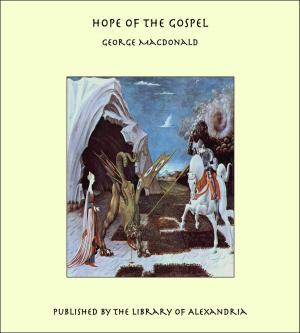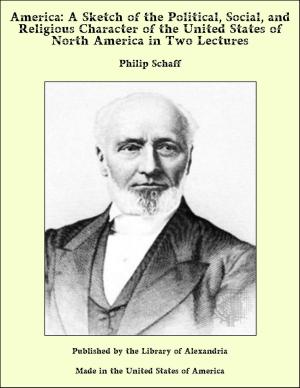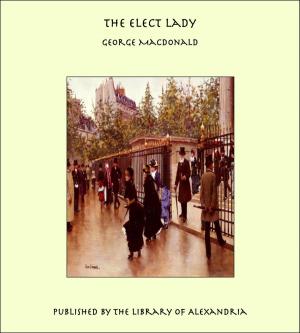Mr. Dooley in Peace and in War
Nonfiction, Religion & Spirituality, New Age, History, Fiction & Literature| Author: | Finley Peter Dunne | ISBN: | 9781465501738 |
| Publisher: | Library of Alexandria | Publication: | March 8, 2015 |
| Imprint: | Language: | English |
| Author: | Finley Peter Dunne |
| ISBN: | 9781465501738 |
| Publisher: | Library of Alexandria |
| Publication: | March 8, 2015 |
| Imprint: | |
| Language: | English |
Archey Road stretches back for many miles from the heart of an ugly city to the cabbage gardens that gave the maker of the seal his opportunity to call the city “urbs in horto.” Somewhere between the two—that is to say, forninst th’ gas-house and beyant Healey’s slough and not far from the polis station—lives Martin Dooley, doctor of philosophy. There was a time when Archey Road was purely Irish. But the Huns, turned back from the Adriatic and the stock-yards and overrunning Archey Road, have nearly exhausted the original population,—not driven them out as they drove out less vigorous races, with thick clubs and short spears, but edged them out with the more biting weapons of modern civilization,—overworked and under-eaten them into more languid surroundings remote from the tanks of the gas-house and the blast furnaces of the rolling-mill. But Mr. Dooley remains, and enough remain with him to save the Archey Road. In this community you can hear all the various accents of Ireland, from the awkward brogue of the “far-downer” to the mild and aisy Elizabethan English of the southern Irishman, and all the exquisite variations to be heard between Armagh and Bantry Bay, with the difference that would naturally arise from substituting cinders and sulphuretted hydrogen for soft misty air and peat smoke. Here also you can see the wakes and christenings, the marriages and funerals, and the Other fêtes of the ol’ counthry somewhat modified and darkened by American usage. The Banshee has been heard many times in Archey Road. On the eve of All Saints’ Day it is well known that here alone the pookies play thricks in cabbage gardens. In 1893 it was reported that Malachi Dempsey was called “by the Other people,” and disappeared west of the tracks, and never came back. A simple people! “Simple, says ye!” remarked Mr. Dooley. “Simple like th’ air or th’ deep sea. Not complicated like a watch that stops whin th’ shoot iv clothes ye got it with wears out. Whin Father Butler wr-rote a book he niver finished, he said simplicity was not wearin’ all ye had on ye’er shirt-front, like a tin-horn gambler with his di’mon’ stud. An’ ‘tis so
Archey Road stretches back for many miles from the heart of an ugly city to the cabbage gardens that gave the maker of the seal his opportunity to call the city “urbs in horto.” Somewhere between the two—that is to say, forninst th’ gas-house and beyant Healey’s slough and not far from the polis station—lives Martin Dooley, doctor of philosophy. There was a time when Archey Road was purely Irish. But the Huns, turned back from the Adriatic and the stock-yards and overrunning Archey Road, have nearly exhausted the original population,—not driven them out as they drove out less vigorous races, with thick clubs and short spears, but edged them out with the more biting weapons of modern civilization,—overworked and under-eaten them into more languid surroundings remote from the tanks of the gas-house and the blast furnaces of the rolling-mill. But Mr. Dooley remains, and enough remain with him to save the Archey Road. In this community you can hear all the various accents of Ireland, from the awkward brogue of the “far-downer” to the mild and aisy Elizabethan English of the southern Irishman, and all the exquisite variations to be heard between Armagh and Bantry Bay, with the difference that would naturally arise from substituting cinders and sulphuretted hydrogen for soft misty air and peat smoke. Here also you can see the wakes and christenings, the marriages and funerals, and the Other fêtes of the ol’ counthry somewhat modified and darkened by American usage. The Banshee has been heard many times in Archey Road. On the eve of All Saints’ Day it is well known that here alone the pookies play thricks in cabbage gardens. In 1893 it was reported that Malachi Dempsey was called “by the Other people,” and disappeared west of the tracks, and never came back. A simple people! “Simple, says ye!” remarked Mr. Dooley. “Simple like th’ air or th’ deep sea. Not complicated like a watch that stops whin th’ shoot iv clothes ye got it with wears out. Whin Father Butler wr-rote a book he niver finished, he said simplicity was not wearin’ all ye had on ye’er shirt-front, like a tin-horn gambler with his di’mon’ stud. An’ ‘tis so















